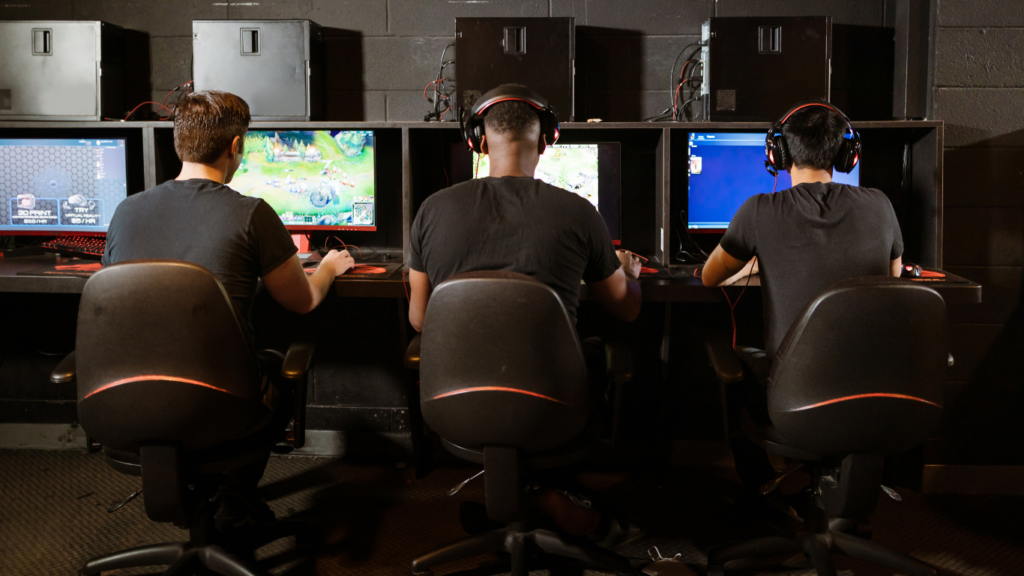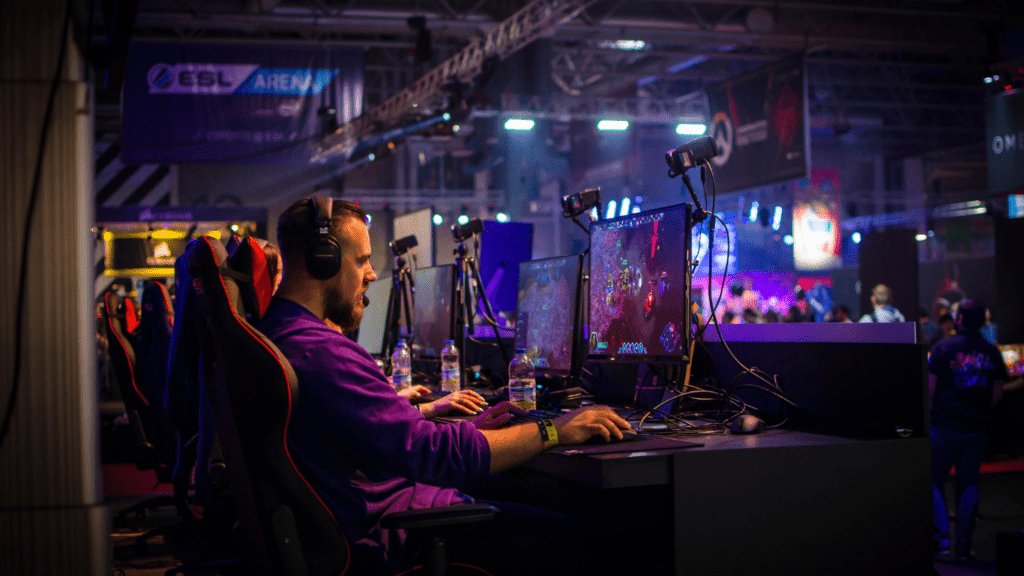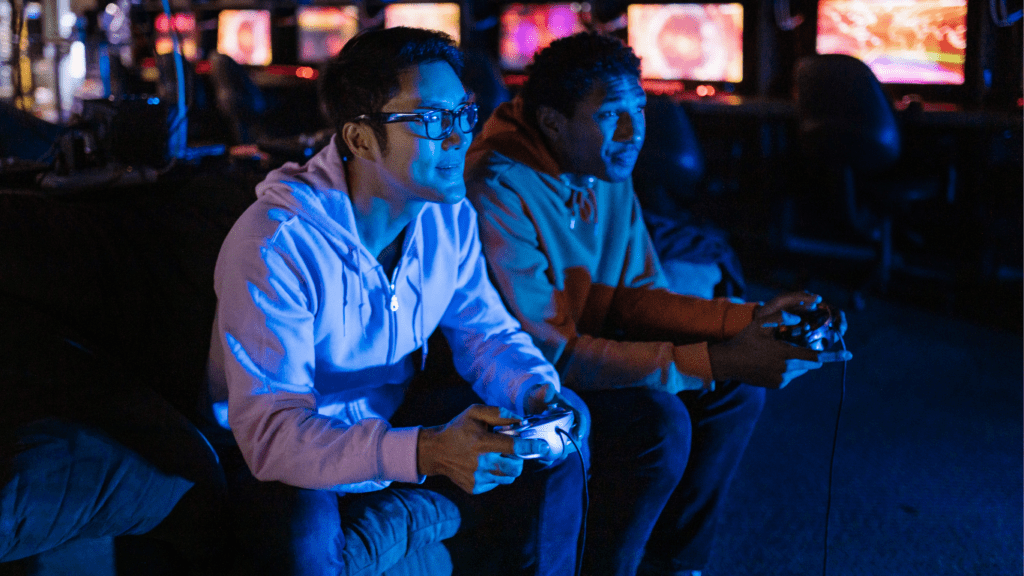The Rise of Esports
I watched as esports transformed from niche competitions into a global phenomenon. Back in the early 2000s, small tournaments gained traction, drawing enthusiastic crowds with games like “StarCraft” and “Counter-Strike.” By 2010, viewership soared when competitive gaming platforms like Twitch and YouTube provided a stage for players worldwide.
Prize pools grew exponentially, leading to significant financial opportunities for gamers. In 2019, “Dota 2’s” The International tournament amassed over $34 million in prizes. Esports organizations formed, attracting sponsorship from major brands like Intel and Coca-Cola, blurring the lines between traditional sports and gaming.
The inclusion of esports in mainstream media bolstered its rise. Networks like ESPN covered major tournaments, and universities began offering scholarships for esports athletes. Notable leagues, such as the Overwatch League, became global, with franchising models similar to the NBA or NFL.
Technological advancements fueled this surge. High-speed internet and powerful gaming PCs improved accessibility, enabling audiences to experience esports at home. Events like the League of Legends World Championship drew millions of viewers, rivaling traditional sports’ finals.
Esports legends emerged, redefining competitive gaming and inspiring a new generation. Icons like Faker and s1mple set new standards, combining skill with strategic innovation. Their influence extended beyond the screen, paving the way for a dynamic, ever-evolving industry.
Defining an Esports Legend
An esports legend is someone who elevates the competitive scene not just through wins but through lasting influence. These players redefine game mechanics and set benchmarks others strive to achieve. When considering what makes an esports legend, three main attributes stand out:
- Skill Mastery: Mastery in any game defines a player’s potential to become legendary. Players like Faker in “League of Legends” exhibit skills so advanced that they shift the meta. Their dexterity and strategic insights redefine what top-tier play looks like.
- Innovative Strategies: Innovation distinguishes these icons. Esports legends frequently introduce novel strategies or techniques. For instance, s1mple in “Counter-Strike: Global Offensive” often disrupts standard tactics, forcing opponents to adapt rapidly.
- Cultural Impact: Beyond gameplay, a legend’s cultural impact solidifies their status. They inspire millions, breaking into mainstream media and influencing new player-driven narratives. Their actions inside and outside competition arenas affect the game’s reach and its community.
In understanding esports legends, recognizing the intersection of skill, strategy, and impact helps appreciate their monumental contributions. Their influence extends beyond victories, fostering growth and innovation within the ever-evolving esports landscape.
Pioneers of Esports

Pioneers in esports laid the groundwork for the competitive gaming scene we see today. They overcame challenges to establish esports as a mainstream entertainment.
Early Influencers
Influencers in the early days of esports played crucial roles in shaping the industry. Johnathan “Fatal1ty” Wendel emerged as one of the first professional gamers, dominating titles like “Quake” and “Painkiller” in the early 2000s. His success drew attention to esports as a viable career path.
Dennis “Thresh” Fong, recognized as the world’s first professional gamer, achieved fame by winning the 1997 “Red Annihilation” tournament, earning a Ferrari among other prizes. He showcased the potential of esports sponsorships and highlighted the competitive nature of gaming. Their achievements inspired a new generation of gamers and set the stage for esports to grow into a global phenomenon.
Iconic Rivalries
Rivalries in esports have added drama and narrative depth to the competitive landscape. The ongoing rivalry between “League of Legends” teams T1 and SK Telecom T1 exemplifies this. With multiple World Championships, they created storylines that captivated audiences.
In “StarCraft,” the legendary rivalry between Lee “Jaedong” Jae-dong and Lee “Flash” Young-ho defined the esports scene for years, showcasing high-level strategy and skill. Such rivalries don’t just entertain; they push players to innovate and improve, driving the evolution of esports as competitors strive for supremacy.
Breakthrough Performers
In esports, a few exceptional players stand out by redefining gameplay and breaking records. These individuals have transformed competitive gaming through their innovations and achievements.
Game-Changing Strategies
I admire the groundbreaking strategies these legends have introduced to the esports scene. For instance, Lee “Faker” Sang-hyeok in “League of Legends” revolutionized mid-lane play with his aggressive and relentless approach, shifting the game’s meta.
Similarly, Oleksandr “s1mple” Kostyliev in “Counter-Strike: Global Offensive” utilized unorthodox tactics and audacious plays, challenging traditional strategies and keeping opponents on edge. These strategic innovations not only secured victories but also influenced how games are played globally.
Record-Breaking Achievements
The achievements of these esports icons are nothing short of astounding. I find it incredible that Johan “N0tail” Sundstein holds the distinction of being the highest-earning player in esports history, with earnings exceeding $7 million from tournaments.
Additionally, Kyle “Bugha” Giersdorf made headlines by winning $3 million in the “Fortnite World Cup” at just 16 years old. These records showcase the potential of esports as a career and illustrate the heights that can be reached with skill and dedication.
Modern Icons in Esports
In recent years, modern esports icons have shaped the competitive landscape across multiple games. These players extend their influence beyond individual achievements, impacting the broader scope of esports through diverse skills and strategic innovations.
Diverse Gaming Platforms
Variety in gaming platforms defines the careers of many esports icons. Players like Lee “Faker” Sang-hyeok dominate PC games with his unmatched skill in “League of Legends.” On console platforms, Matthew “Nadeshot” Haag made a name for himself in “Call of Duty,” showcasing how console gaming commands its own unique community and viewership.
Mobile gaming also boasts stars, such as Zhou “Zhou” Yang, who excel in “Honor of Kings” with impressive promptness and tactical precision. Each platform offers distinct challenges, and these legends exemplify versatility and mastery across diverse gaming modalities.
Global Impact and Popularity
Modern esports legends hold significant global influence, reflected in both their massive fanbases and widespread media coverage. Icons like Oleksandr “s1mple” Kostyliev not only elevate the standard of play in “Counter-Strike: Global Offensive” but also engage millions worldwide through streaming platforms.
Their popularity transcends borders, uniting diverse audiences with shared enthusiasm for competitive gaming. The impact extends further with social media presence, where stars like Joona “Serral” Sotala connect directly with fans, fostering a community-driven environment. These individuals exemplify how modern esports figures can achieve cross-cultural appeal and contribute to the universal growth of the industry.
Challenges and Controversies
Esports legends face various challenges that test their resilience and influence their careers. From personal dilemmas to competitive dynamics, overcoming these hurdles defines their legacy.
Overcoming Personal Obstacles
Many esports players must tackle personal difficulties to reach the pinnacle of success. Health issues, like:
- Repetitive Strain Injury (RSI)
- mental health struggles
frequently challenge players’ careers. Icons like Hai Lam, known for his time in “League of Legends,” have openly discussed their battles with health conditions that impacted their gameplay.
Players also navigate societal and familial expectations, often balancing the demands of professional gaming with personal obligations. Competing at the highest level requires a commitment that some families initially struggle to support, which adds emotional and psychological pressure.
Navigating Competitive Environments
The esports landscape is highly competitive and constantly evolving, requiring players to adapt or risk being left behind. Players face intense pressure to perform consistently, with the constant threat of being replaced by emerging talent. Strategies and game mechanics evolve quickly, forcing legends to continually innovate to maintain their edge.
For instance, the agility and adaptability of Lee “Faker” Sang-hyeok in “League of Legends” demonstrate the necessity for quick adaptation and strategic foresight. Additionally, managing team dynamics poses significant challenges as players often come from diverse cultural backgrounds, leading to potential communication barriers and conflicts.


 Senior Sports Writer
Alfred Alder is the senior sports writer at Sprint Scoop News, bringing his extensive knowledge of fitness, training, and sports business to the forefront. With a career spanning more than a decade, Alfred specializes in delivering high-quality, engaging content that covers everything from sponsorship trends to the latest in health and nutrition for athletes. His deep understanding of the sports industry allows him to provide readers with comprehensive insights that make complex topics accessible and exciting.
Senior Sports Writer
Alfred Alder is the senior sports writer at Sprint Scoop News, bringing his extensive knowledge of fitness, training, and sports business to the forefront. With a career spanning more than a decade, Alfred specializes in delivering high-quality, engaging content that covers everything from sponsorship trends to the latest in health and nutrition for athletes. His deep understanding of the sports industry allows him to provide readers with comprehensive insights that make complex topics accessible and exciting.
